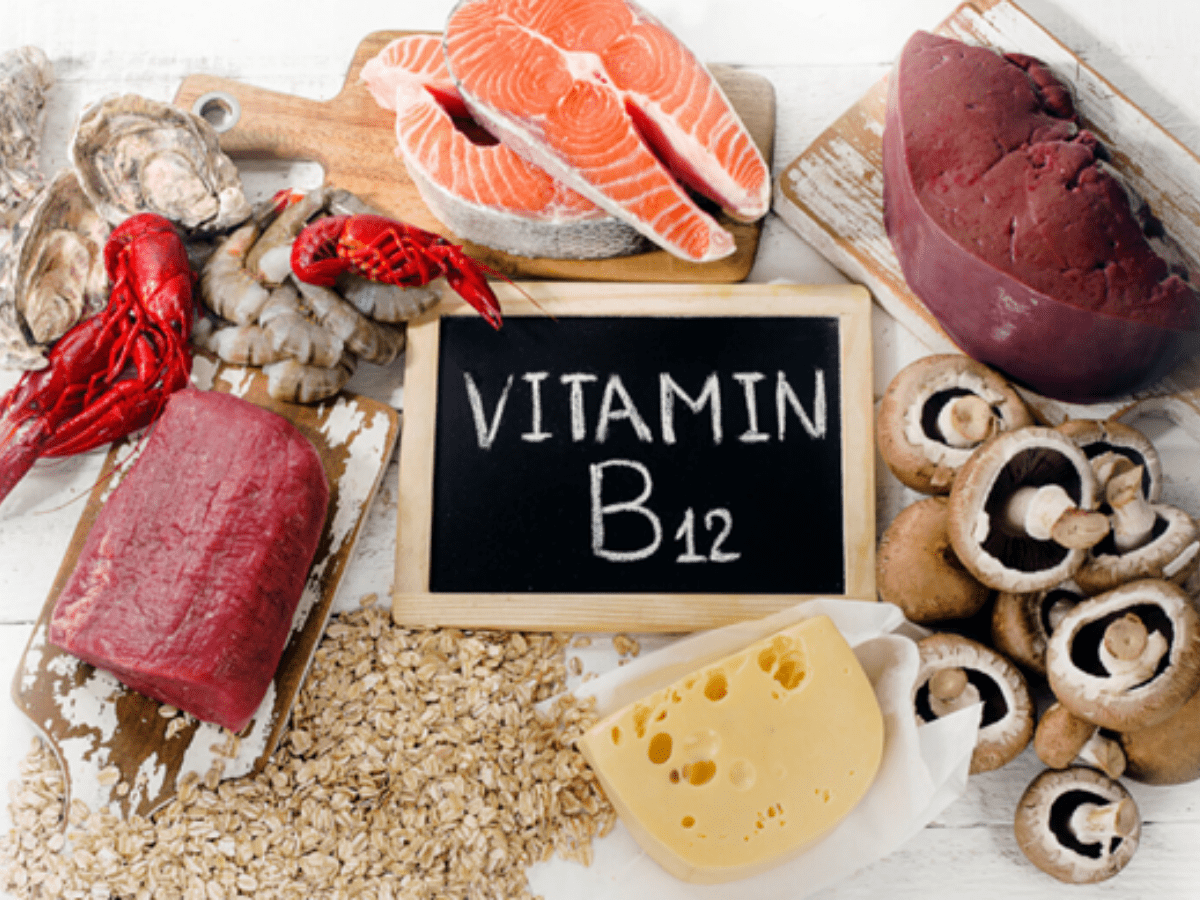
What to Look for in B Vitamin Deficiencies
B vitamins are a group of essential water-soluble vitamins with many important functions in the body. Each of the eight vitamins has a different role in the body but collectively, they help the body produce energy by supporting the nerves and blood cell function. Water-soluble vitamins cannot be stored in the body for long as they are secreted through urine, which means B vitamins must be replenished daily from dietary intake or supplements.
The Eight B Vitamins:
Vitamin B1 – thiamine
Vitamin B2 – riboflavin
Vitamin B3 – nicotinamide
Vitamin B5 – pantothenic acid
Vitamin B6 – pyridoxine
Vitamin B7 – biotin
Vitamin B9 – folate
Vitamin B12 – cyanocobalamin
Eating a balanced diet from a variety of food groups is the best way to ensure that you are consuming all eight B vitamins. However, factors such as pregnancy, age, alcohol use, following a vegan or vegetarian diet can reduce B vitamin levels in the body. B vitamin supplements may be required if you are not consuming enough food with the correct nutrients.
Role of Each B Vitamin and Deficiency
Vitamin B1 (thiamine):
Thiamine supports nerve function and metabolism by converting glucose from food into energy. Thiamine-rich food includes whole grains and seeds, pork, nuts and legumes. Thiamine deficiency is more common in countries that consume white rice daily as part of their diet. It can also occur in people with poor diets, alcohol dependence or chronic illnesses. Symptoms include appetite loss, confusion, increased heartbeat, muscle weakness, and pins and needles tingling in hands and feet.
Vitamin B2 (riboflavin):
Riboflavin's primary role is energy production and also acts as an antioxidant for vision and skin health. Riboflavin-rich food includes organ meats, mushrooms, fortified bread and cereals, and beef. People most at risk of riboflavin deficiency are those who consume excessive alcohol, people who do not consume dairy products, pregnant women and people following a vegan diet. Symptoms include cracks and inflammation on the tongue and mouth, hair loss, skin conditions and red eyes. In severe cases, riboflavin deficiency can lead to anaemia and eye cataract.
Vitamin B3 (nicotinamide):
Nicotinamide is responsible for converting carbohydrates and fat into energy. It also supports the digestive system and metabolism. Nicotinamide-rich food includes meat, poultry, fish, nuts and mushrooms. Symptoms of nicotinamide deficiency include fatigue, skin discolouration, vomiting, diarrhoea and confusion.
Vitamin B5 (pantothenic acid):
Pantothenic acid supports energy, hormone and cholesterol production from food. Pantothenic acid-rich food includes liver, avocado, fish, milk and eggs. Pantothenic acid deficiency symptoms include headaches, vomiting, loss of appetite and numbness.
Vitamin B6 (pyridoxine):
Pyridoxine is involved in over 100 enzyme functions and supports the immune system and brain health. Pyridoxine-rich food includes meat and poultry, chickpeas, fortified cereal and bread, salmon, tuna and potatoes. Pyridoxine deficiency usually occurs when vitamin B12 and folic acid levels are low. Symptoms include weakened immunity, cracked corners of the mouth, anaemia, depression and swollen tongue.
Vitamin B7 (biotin):
Biotin is responsible for energy metabolism by breaking down fats, proteins and carbohydrates. Biotin is found in a variety of foods, including cooked egg yolks, organ meats, salmon and yeast. Biotin deficiency symptoms include brittle nails, thinning hair, dry and scaly skin, and loss of appetite.
Vitamin B9 (folate):
Folate's primary role is in protein metabolism, forming DNA and cell growth. Pregnant women require higher amounts of folate to minimise risks of neural tube defects and for healthy foetal development. Foods rich in folate include dark green leafy vegetables, liver, poultry, eggs, beans, whole grains and foods fortified with folic acid. Folate deficiency in pregnant women increases the chances of neural tube defects in the baby. Other symptoms include fatigue, weight loss and tiredness.
Sources of Vitamin B12 is largely from animal sources, which can be difficult for people following a vegan or vegetarian diet to get.
Vitamin B12 (cyanocobalamin):
Cyanocobalamin's function in the body is red blood cell and DNA formation. It also plays a key role in brain and nerve cell production. Cyanocobalamin is mostly found in animal sources, such as liver, meat, poultry, milk and yoghurt. People following a vegetarian or vegan diet are most at risk of cyanocobalamin deficiency and must get it through fortified foods or supplements. Symptoms of cyanocobalamin deficiency include fatigue, mental health problems, loss of appetite, memory problems and constipation.
B Vitamins Supplements Health Benefits
The eight B group vitamins have their individual roles but all work together to support major functions and energy production throughout the body. A study found that healthy adults may benefit from dietary supplements to improve mental health and stress levels even if not deficient. People at risk of developing a B vitamin deficiency can take supplements to boost their mood, energy levels, and enhance heart and skin health.
If you enjoyed reading this blog, consider joining our mailing list to ensure you are up to date with the latest health and complementary medicine news and information.
Lipa Pharmaceutical's Private Label range includes Mega B, a one-a-day supplement with all eight B vitamins for nutritional support.
By accepting you will be accessing a service provided by a third-party external to https://www.lipa.com.au/






